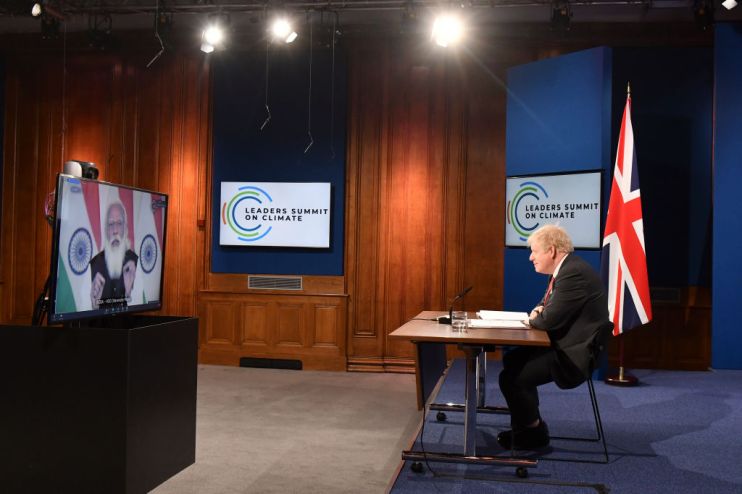Even as India grapples with a growing crisis, strong trade ties with the UK are still at the top of the agenda

Indian Prime Minister Narendra Modi is in the midst of grappling with the ever-worsening tsunami of coronavirus cases and tales of heartbreak in India. As a result, Boris Johnson was forced to cancel his trip last week. However, this has done nothing to dampen the enthusiasm from both countries who have continued to push forward to build a comprehensive partnership.
The Enhanced Trade Partnership (ETP) would help Britain face up to the threat of China and unlock the trading potential of the Indo-Pacific region. This should be seen as part of a broader strategy from ministers to focus on the Indo-Pacific region as the future of Britain’s trade.
Integral to this shift is Britain’s changing attitude towards China. Post-Brexit, the Indo-Pacific Strategy has gained prominence, and the landmark Integrated Review of Security, Defence, Development and Foreign Policy reiterated the need for this to encourage global stability in a region undergoing enormous change. This means the UK must continually turn its attention to the most important powers in the area – India, Japan and Australia.
Though the UK courted Chinese investments under what David Cameron heralded as the “golden era” of bilateral relations, it recognised that China was a threat, particularly in the South China Sea. As the UK’s trading relationship with the EU weathers significant growing pains post-Brexit, it is essential Britain builds up relationships in the region to prevent an over-reliance on China.
Britain’s relationship with India is both historic and economic – it is the UK’s sixth largest trading partner outside the EU. In 2019, UK-India trade was worth £25.5bn. There is enormous opportunity for a stronger relationship to create more jobs in the UK as it treads a tentative path towards recovery from the pandemic. In 2020, India was the second largest investor in the UK and it is home to 850 Indian companies that provide employment to more than 116,000 people. An ETP will provide British businesses greater access to a market of 1.3 billion people – the largest for goods outside the EU, at a time when the prospects for global growth after the COVID-19 pandemic remain uncertain.
A deal with India will also reaffirm Britain’s commitment to a global outlook and rebuild its place on the world stage. It will help unlock previously untapped potential in the region. Earlier this year, Britain formally applied to join the Comprehensive and Progressive Agreement for Trans-Pacific Partnership (CPTPP). This was followed with efforts to become an official dialogue partner of the ten-member Association of Southeast Asian Nations (ASEAN).
The UK has also taken steps to strengthen security cooperation with Indo-Pacific countries, and build stronger relations with Japan and the members of the Five Power Defence Arrangements (FPDA), which are multilateral agreements between Australia, Malaysia, New Zealand, Singapore, and the UK.
An ETP with India will also help both the UK and India address shared interests in tackling common challenges. Climate change poses an urgent threat to the international community. Mr Johnson has reached out the hand of friendship to Prime Minister Modi by inviting him to both the G7 and the COP26 summit in the UK. The environmental challenge cannot be dealt with in isolation and a trade relationship can help forge diplomatic ties to help tackle climate change together.
There will be differences in the negotiating asks when the UK and India sit down to start free trade deal negotiations, but there is rich territory for the two nations to build a far deeper relationship.